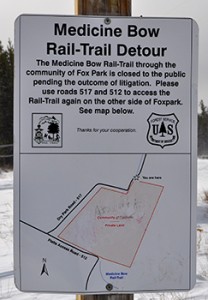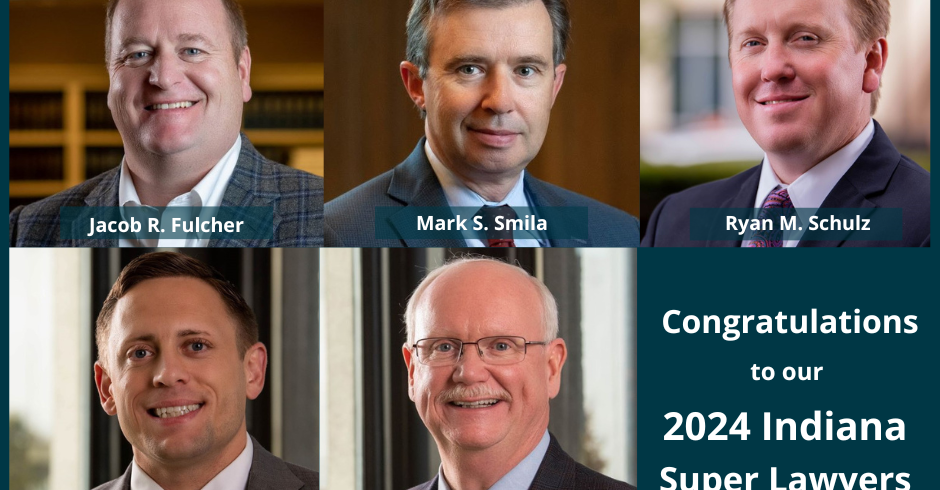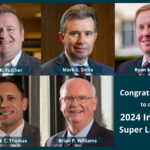
In a case that may have implications on thousands of miles of former railroads that have since been converted to recreational trails, the U.S. Supreme Court issued a decision on March 10, 2014, in favor of the property owner and against the U.S. Government. In Marvin M. Brandt Revocable Trust et al. v. United States, 571 U.S._____(2014) , the Supreme Court Justices ruled 8-1 that the property owner remains the owner of a 200-foot-wide abandoned railroad right-of-way that crosses an 83-acre parcel in southern Wyoming’s Medicine Bow National Forest.
First, the Court reviewed the history of the right-of-way:
- 1908: Pursuant to the General Railroad Right-of-Way Act of 1875, the United States government granted a railroad right-of-way through southern Wyoming’s Medicine Bow National Forest to the Laramie, Hahn’s Peak and Pacific Railroad.
- 1976: Melvin Brandt acquired an 83-acre parcel of the property by patent from the United States, subject to the existing railroad right-of-way.
- 2004: A successor railroad company abandoned the right-of-way and removed all of the tracks and ties.
- 2006: The U.S. Government filed a lawsuit to obtain title to all of the abandoned right-of-way, including the portion which crossed Brandt’s property, claiming that the right-of-way granted to the railroad company contained an implicit reversionary interest in favor of the Government.
Following the review of these facts, the Supreme Court held that the 1875 Act did not contain any such reversionary interest and that the right-of-way was merely an easement that became the property of the landowner once it was abandoned by the railroad.
In a case of “you made your bed, now lay in it,” the Supreme Court in Brandt relied heavily on its prior decision in Great Northern Railway Co. v. United States, 315 U.S. 262 (1942), in which the Government previously argued that a railroad company did not own the mineral rights underneath its right-of-way because “the 1875 Act granted an easement and nothing more.”
For more information on this case and the potential implications, please contact attorney Mike DiRienzo at (812) 423-3183 or mdirienzo@KDDK.com.
About the Author

Michael E. DiRienzo, a Partner at Kahn, Dees, Donovan & Kahn, LLP, in Evansville, Ind., has more than 10 years of experience assisting clients in the areas of bankruptcy, collection & creditors’ rights law, and complex commercial litigation involving business, environmental, construction and real estate disputes and condemnation proceedings in state and federal courts in Indiana and Illinois. Michael helps KDDK clients effectively resolve disputes and continue to build their businesses.






